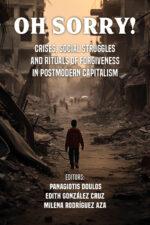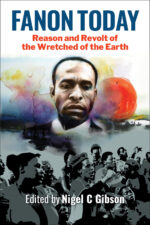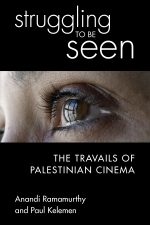-
Oh, Sorry! Rituals of Forgiveness, Crises and Social Struggles in Postmodern Capitalism
As the world grapples with the legacy of crimes of enslavement, colonialism, genocide and mass killings, imprisonment and murder of children, attempts at eliminating cultures and history of Indigenous peoples, looting and other crimes against humanity, the performance of public atonement has become increasingly prevalent. Apologies from state actors and institutions are issued in solemn ceremonies, often acknowledging the collective guilt for historical atrocities. Despite the solemnity of these events, there is a growing scepticism surrounding the sincerity of these apologies, particularly when they are not accompanied by tangible reparations, healing, reconciliation or systemic change. This scepticism is rooted in a perception that these acts of contrition are sometimes less about making amends to the aggrieved and more about assuaging the guilt of the aggressors and maintaining the status quo, providing the illusion of progress without the substance.
In this compelling work, Oh, Sorry! Rituals of Forgiveness, Crises and Social Struggles in Postmodern Capitalism, the authors unveil the complex interplay between public apologies, social justice and popular mobilisations. They argue that these acts of contrition while heralding unresolved histories into the public eye, serve as battlegrounds where the definitions of truth and the contours of historical memory are fiercely contested. This collection of essays illuminates the paradoxical nature of these rituals, positing that rather than catalysing transformative change, they simply cement the prevailing societal structures, emboldening states to persist in their destructive paths under the guise of remorse. Such apologies often precede an expected forgetfulness, rendering truth a malleable tool to compartmentalise the past as a distant occurrence, not an ongoing narrative. The discourse laid out in these essays emphasizes the tension inherent in the act of forgiveness—an act that, within the established framework, demands that the state remain unchallenged, wielding the power to decree what should or should not be forgiven.
The editors of this book did not intend this to be a comprehensive treatise on the rituals of forgiveness: the chapters are devoted primarily to the experiences of Latin America, particularly of Mexico, Guatemala, Chile, and Brazil. But there is also a chapter on the struggles for Palestine — so relevant in the face of the current genocidal invasion by the Zionist State of Israel into Gaza, the world’s largest and most densely populated concentration camp. Nithya Nagarajan explores the ongoing plight of Palestinians since the Nakba in 1948, and event that, for over 75 years, has not only subjected Palestinians to severe hardships but has also seen their resistance and struggle for liberation being ideologically effaced by Israeli and mainstream media efforts, portraying Palestinians as victims rather than agents of revolution.
Forward by Firoze Manji
Introduction
One
Rituals of Forgiveness: The Performance of State Violence in the Context of Crisis by Panagiotis Doulos & Edith González Cruz
Two
From Forgiveness to Permission: The State and “the Indigenous” in the Face of Planetary Collapse by Ines Durán Matute.
Three
End(s) of Forgiveness by Minas Vlachos
Four
The Fierce Dispute for Memory, Truth and Justice in Guatemala by Carlos Figueroa Ibarra.
Five
Never Again? A Critique of Narratives of Forgiveness and Reconciliation in Post-dictatorial Chile by Roberto Longoni Martínez.
Six
Rituals of Forgiveness as a Political Strategy of the Capitalist State: The Brazilian Case of “O Amor Venceu” in Lula’s Victory in 2022 by Leonardo Carnut, Lúcia Dias da Silva Guerra & Áquilas Mendes.
Seven
The No-bodies: Between Forgiveness and Overflow. Notes Against Forgiveness as a Dispositive of Control in Times of Explicit Antagonism by Milena Rodríguez Aza.
Eight
The March of Return: Struggle for Palestinian Liberation in the Unfinished Nakba by Nithya Nagarajan.
-
Struggling to be seen: The travails of Palestinian cinema
The book explores the challenges Palestinian filmmakers confront to develop a cinema that gives expression to the national narrative. It is based on collaborative research involving Film Lab Palestine, Sheffield Palestine Cultural Exchange and Sheffield Hallam University. We explore the political, economic and cultural contexts that impact on Palestinian film production and some of the barriers encountered in profiling and screening Palestinian films, to shed light on the complex terrain that is traversed to sustain and develop a film industry and film culture in historic Palestine and beyond.
Table of contents
Image credits
Introduction
The struggle to develop a national cinema
The experience of Filmlab Palestine
Visualising the Palestinian past
Roadblocks, borders and hostile environments
The screening and reception of Palestinian films
The Palestinian short film
Conclusion
Filmography
Appendix 1: Cinema of the Palestinian Revolution
Appendix 2: 70 Years of Nakba: Audience response
Appendix 3: Love and Desire in Palestine: Audience response
Appendix 4: Selection of leaflets from film screenings
About the authorsPraise for Struggling to be seen
To so nimbly and elegantly traverse Palestinian time and space is itself a defiance of the occupation’s brutally enforced barriers. The authors’ unstintingly political examination of Palestinian cinema has much to offer both those in the know and readers new to this extraordinary body of work. — Kay Dickinson, Professor, Film Studies, Concordia University
Working extensively through primary sources, conducting research and interviews across generations of Palestinian filmmakers, the authors offer the reader an ambitious and wide-ranging essay which charts the development of a national Palestinian cinema, from an historical and critical perspective. By exploring the constellation of political, social and aesthetic concerns that shape this cinema, this authors challenge us to rethink the stakes behind the contemporary development of a Palestinian cinema industry, its audience reception, in historic Palestine and beyond.— Samia Labidi, cultural programmer & artistic curator
Illuminating and compelling, Struggling to be Seen lays bare the historical, enduring but also emerging (colonial and neocolonial) obstacles to the development of a film industry and film culture within the West Bank and Gaza. Though familiarly sobering (in its re-confirmation of the scale of injustice facing Palestinians), the book provides up-to-the-moment and an interdisciplinary account that provides rich, fresh terrain that reveals new and exciting progressions within Palestinian film culture. —Michele Aaron, Reader in Film and Television, University of Warwick, author of Death and the Moving Image: Ideology, Iconography and I (Edinburgh Univer- sity Press, 2014) Director, Screening Rights Film Festival.
Struggling to be Seen is a must read for those who are interested in under- standing the multilayered challenges that face Palestinian cinematography from its production phase to its screening phase. The book is a short read which takes the readers through the different stages which shaped the Palestinian film making enterprise. Struggling to be Seen shows the restrictions that Palestinian filmmakers face from the initial stages to funding and screening. The authors tell a story of a people whose sense of self-reflection is suppressed by the Israeli oppressive machine which con- stantly works at erasing the Palestinian peoplehood, detaching it from its past.— Nahed Habiballah, Assistant Professor and member of the Board of Directors of Policy and Conflict Resolution Studies Center, Arab American University, Ramallah, Palestine



